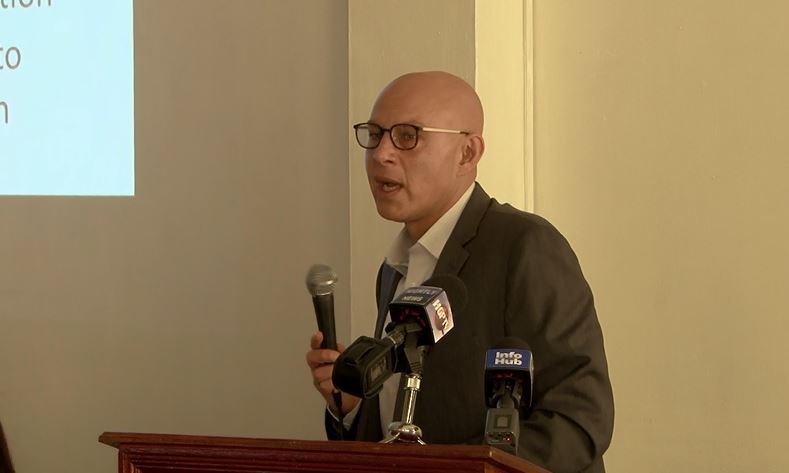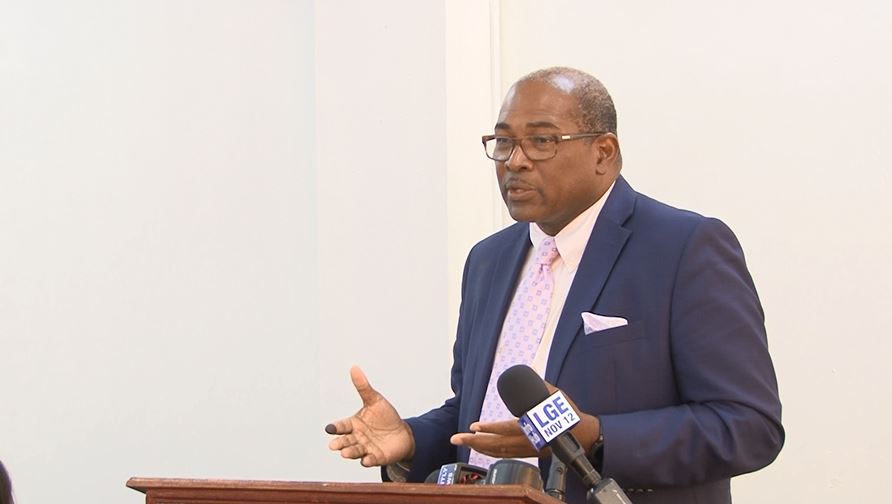By Bibi Khatoon
Prominent Attorney-at-law, Nigel Hughes believes that the death penalty in Guyana should be abolished since there is not enough confidence in the Guyana Police Force (GPF) and its system of conducting investigations.
Speaking at a seminar organised by the European Union (EU) delegation which is in Guyana to intensify its push for the abolition of the death penalty, Mr Hughes noted that the possibility is too high of an innocent person being hanged.
Presenters before Mr. Hughes spoke of the cruelty of the punishment, but he noted that “one of the challenges, long before the punishment is cruel, is whether we can trust the system.”
No matter the public view, it is the “whether there is confidence in the system leads to conviction,” the prominent criminal Attorney said.
Mr Hughes noted that Guyana operates on a system where convictions are based on confessions but it is easy for the police to “create” confessions while other methods used are also questionable.
He also criticized the 72 hours given to the police to keep a suspect in custody, noting that it is their (the police’s) most lethal weapon.
The prominent Lawyer referred to the Forensic Laboratory which was established in 2014 but is yet to be put in operation.
The Lab is supposed to play a critical role in police investigations.
“The forensic skills of the police are obsolete,” Mr Hughes said.
“If you do not improve the investigative capacity of the Guyana Police Force and if there is not a migration from the reliance on confessions to the reliance on scientific proof,” the possibility of someone innocent being convicted is very high, he noted.
The confessions, he said, are mostly questioned by the Jury depending on the public trust in the police force at the time of the crime.
The death penalty is directly linked to the period of colonialism but while it still obtains in some Commonwealth countries, the UK amended its laws in 1965 to eliminate the penalty.
Mr. Saul Lehrfreund, Co-Executive Director of the EU’s Death Penalty Project, deemed the law an “outdated, barbaric punishment from the past.”
The last execution in Guyana was in 1997.

In 1999, Mr Hughes was able to get a legal Stay for Abdool Salim Yassin and Noel Thomas who were sentenced to death in 1987 for the murder of Yassin brothers.
Yassin died in prison in 2002 and Noel Thomas was released on parole last month.
As of February 2017, there were 25 persons on death row.
However, at least three persons –two of whom are women –have been sentenced to death for murders in 2018.
Several persons called for the restoration of the death penalty following the gruesome death of 13-year-old Leonard Archibald of Brothers Village, East Bank Berbice in September 2017.












